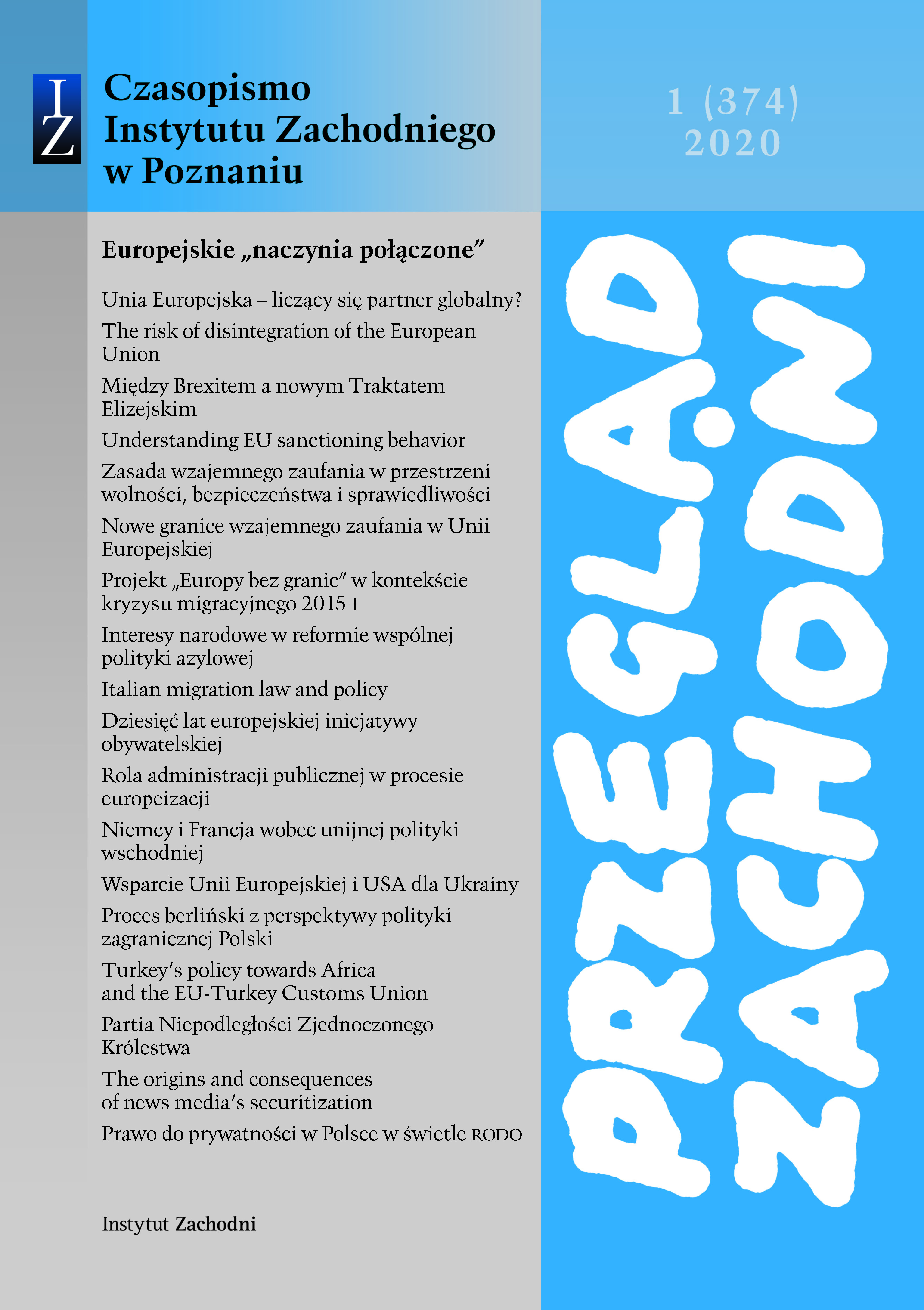Stanowisko Niemiec i Francji wobec unijnej perspektywy rozwoju polityki wschodniej po pierwszej dekadzie Partnerstwa Wschodniego
The position of Germany and France towards the perspective of developing the EU’s Eastern policy after the first decade of the Eastern Partnership
Author(s): Sylwia ZawadzkaSubject(s): EU-Approach / EU-Accession / EU-Development
Published by: Instytut Zachodni im. Zygmunta Wojciechowskiego
Keywords: Eastern Dimension; European Union; Eastern Partnership; European Neighbourhood Policy; Deep and Comprehensive Free Trade Areas
Summary/Abstract: The Eastern Partnership inaugurated in 2009, is the foundation of the Eastern dimension of the European Neighbourhood Policy. Six Eastern European and Southern Caucasus countries have been included in this program and have become strategic partners for the EU after a decade of co-operation. Nevertheless, the attitude of individual Member States towards developing Eastern policy varies. This is determined by a different degree of involvement in ENP projects and by prioritizing specific dimensions. The article presents the position of Germany and France towards the establishment and vision of the development of the Eastern Partnership after a decade of its functioning. The aim of the article is to clarify the priorities that these countries follow in their vision of developing EU Eastern policy and to what extent these priorities can be considered as political constraints for deepening cooperation within the Partnership. The analysis is based on the assumption that despite the lack of a comprehensive EU strategy for the future of this cooperation, both France and Germany, forming the European „tandem”, follow a similar concept of the Partnership program development, based on three basic issues: limiting political cooperation for deepening economic integration; giving priority to relations with Russia, a firm opposition to political declarations related to the recognition of the aspirations of partner countries for EU membership. The main research method used in the article is the analysis of official documents of EU institutions and French and German government institutions in the field of foreign policy (including European policy), as well as official speeches of representatives of both countries. The comparative method was applied at the level of comparing the EU approach, as well as that of the German and French authorities, to the development of the Eastern Partnership in the medium and long term.
Journal: Przegląd Zachodni
- Issue Year: 374/2020
- Issue No: 01
- Page Range: 199-223
- Page Count: 25
- Language: English, Polish

